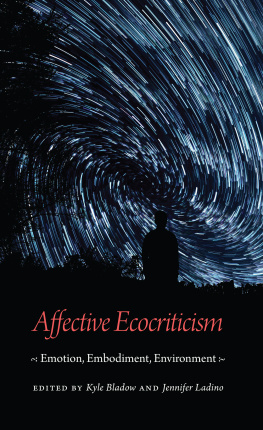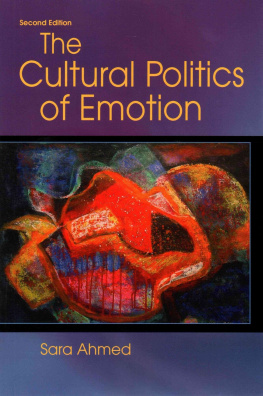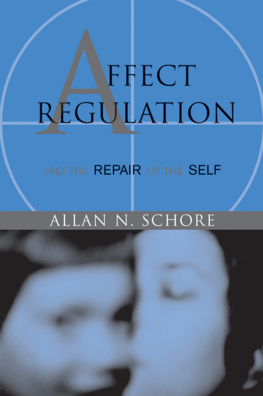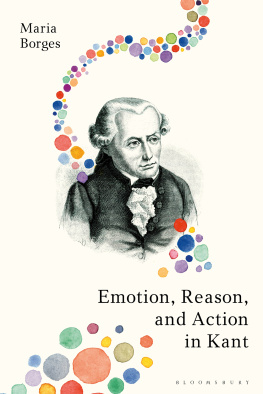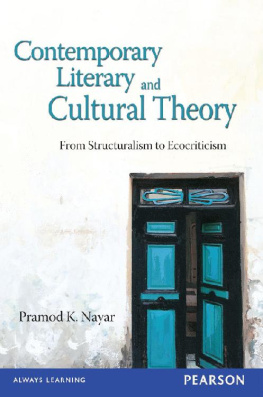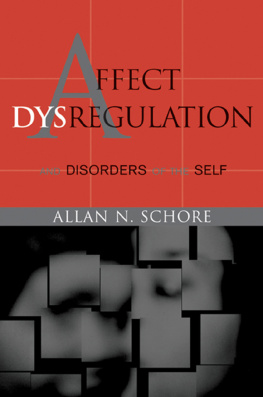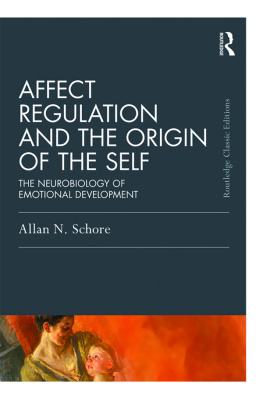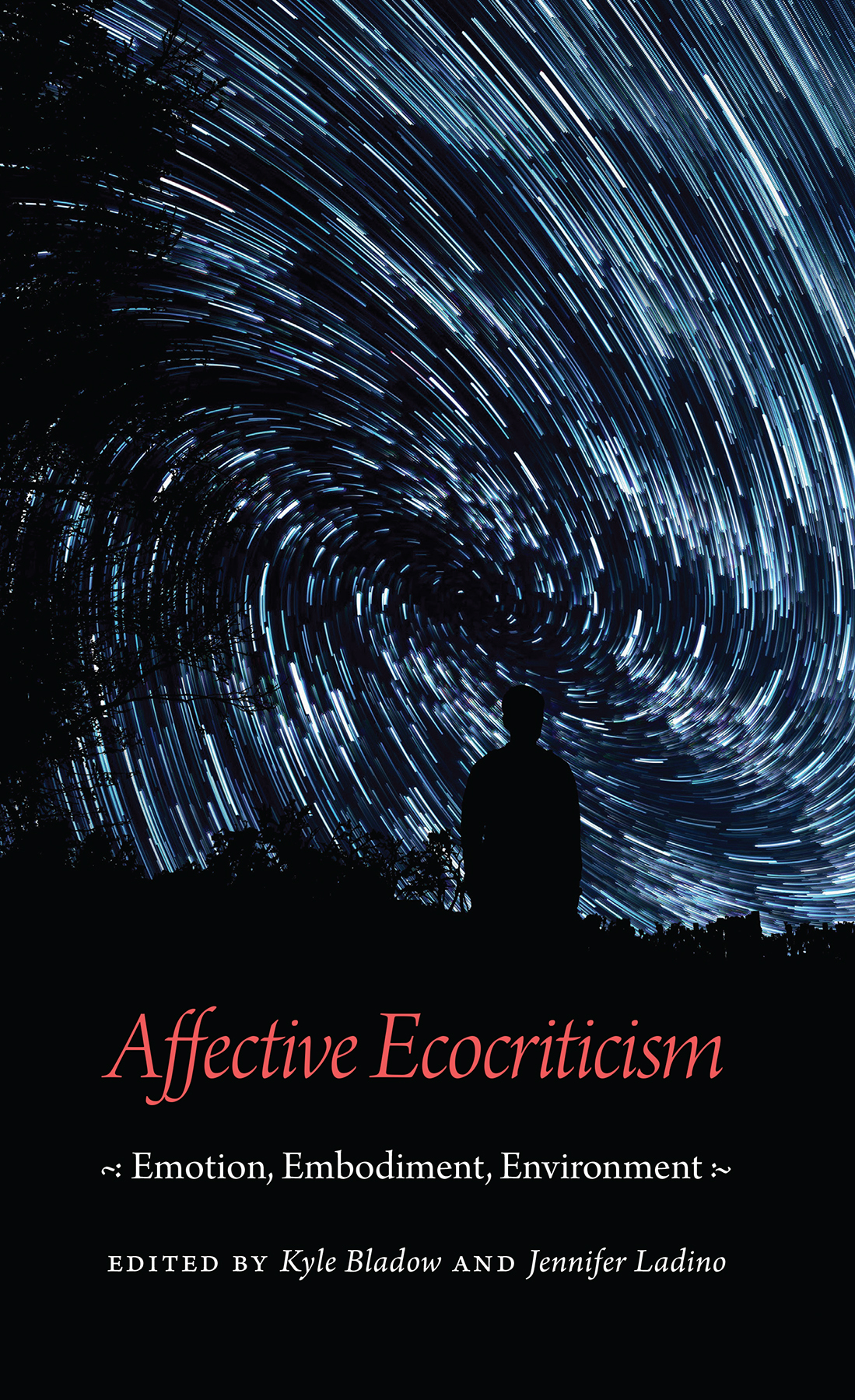
Affective Ecocriticism cements the importance of affectand not only data or narrativeto understanding current environmental crises and relations. It also posits how affect bears on acting on these crises (or not) and pivoting our relations. That is, the essays here arent merely descriptive or diagnostic; they also look to possibilities for response.
Heather Houser, associate professor of English at the University of Texas at Austin and author of Ecosickness in Contemporary U.S. Fiction: Environment and Affect
Affect theory and ecocriticism are both already vibrant fields of inquiry, but Affective Ecocriticism makes a strong case for their inherent compatibility. This field-defining book demonstrates the deeper ground that both of these approaches might find were they to understand the basic fact of their shared concerns, methods, and aims.
Rachel Greenwald Smith, associate professor of English at Saint Louis University and author of Affect and American Literature in the Age of Neoliberalism
Affective Ecocriticism
Emotion, Embodiment, Environment
Edited by Kyle Bladow and Jennifer Ladino
University of Nebraska Press | Lincoln and London
2018 by the Board of Regents of the University of Nebraska.
Cover designed by University of Nebraska Press; cover image Jeremy Thomas / Unsplash.
All rights reserved.
Library of Congress Cataloging-in-Publication Data
Names: Bladow, Kyle A., 1985 editor. | Ladino, Jennifer K., editor.
Title: Affective ecocriticsm: emotion, embodiment, environment / edited by Kyle Bladow and Jennifer Ladino.
Description: Lincoln: University of Nebraska Press, [2018] | Includes bibliographical references and index.
Identifiers: LCCN 2017049296
ISBN 9781496206794 (cloth: alk. paper)
ISBN 9781496207562 (pbk.: alk. paper)
ISBN 9781496208569 (epub)
ISBN 9781496208576 (mobi)
ISBN 9781496208583
Subjects: LCSH : Climatic changesPsychological aspects. | Affect (Psychology) | Ecocriticism.
Classification: LCC BF 353.5. C 55 A 44 2018 | DDC 152.4dc23 LC record available at https://lccn.loc.gov/2017049296
The publisher does not have any control over and does not assume any responsibility for author or third-party websites or their content.
Contents
Kyle Bladow and Jennifer Ladino
Nicole M. Merola
Alexa Weik von Mossner
Neil Campbell
Jobb Arnold
William Major
Tom Hertweck
Ryan Hediger
Robert Azzarello
Brian Deyo
Allyse Knox-Russell
Nicole Seymour
Lisa Ottum
Graig Uhlin
Sarah Jaquette Ray
As with many collections, this one evolved from conversations at conferencesin particular, the Association for the Study of Literature and Environment ( ASLE ) conference in Moscow, Idaho, in 2015. We thank Sylvan Goldberg for being part of our panel Speaking a Word for Affect: Affective Ecocriticism (and for inspiring that panels and this collections title) and the enthusiastic audience members who attended and posed provocative questions. ASLE continues to be a vibrant and supportive intellectual community, for which the editors are grateful.
Wed also like to thank the two anonymous readers for their careful reviews of the manuscript and thoughtful suggestions for revisions. Their responses shaped this book in important ways. The editorial staff at the University of Nebraska Press has been professional and helpful throughout the process, and we appreciate their energetic support of this project.
Finally, we would like to thank our dream team of contributors. This group of authors surpassed all our expectations for promptness of submissions, diligence of revisions, and quality of scholarship. They made this project a pleasure to work on.
Placing Feeling in the Anthropocene
Kyle Bladow and Jennifer Ladino
The Great Barrier Reef of Australia passed away in 2016 after a long illness. It was 25 million years old. So begins Outside magazines mock obituary for the Great Barrier Reef, one of the more recent victims of climate change and its associated impacts.
Articles like this one, which cast environmental catastrophe in affectively striking terms, are all over the news. A twenty-four-hour news cycle and mobile information technologies at our fingertips increase the speed, frequency, and intensity with which many of us seek out and share news stories. Meanwhile, these same technologies enable corporations to track and manage our affects: emotion recognition startups help tech giants pinpoint the emotional states of individual consumers, while other companies amass composite moods using biometric data at sporting events and movie theaters. Affects are at the center of contemporary biopolitics and are more public, more powerful, and more pertinent than ever.
A glance at headlines on any given day, with their reports of high fire danger, record temperatures, climate refugees, melting glaciers, extinct
As we write this, there is plenty to find shocking. Terrorist attacks seem increasingly commonplace, and nationalism is on the rise in the United States and Europe. The failure of the press and most polls to predict Donald Trumps stunning victory in the 2016 U.S. presidential electionfollowed by alarming new discourse about alternative facts and fake newsraises concerns about a posttruth world in which emotional appeal, not reason, wins the day. Emotions are running high. In the United States the Right and Left are more polarized than ever, with strong feelings surfacing, for example, in postelection debates over whether to approach Trump supporters with a spirit of empathy or to shame them as racist, sexist xenophobes.to redouble their efforts to curb carbon emissions in response to Trumps decision to abandon the Paris Agreement, that decision nevertheless raises major concerns about the nations commitment to mitigating the effects of climate changeand about its role in global politics.
Environmental humanities scholars find ourselves faced with important tasks: we must find new, more compelling ways to foreground connections between environmental and social justice, and we must reach across ideological, species, and scalar boundaries to find common ground in this new geologic epoch. A premise of this collection is that affect theory can help with both. Since both climate and social justice activists require altruistic emotions as a foundation for action, a clearer sense of what those emotions are and how they work might reconnect environmental and social justice.
Reading is one instance in which affect begins at the micro-scale, and scholarship that draws on cognitive science to account for what happens affectively in readers is an area of growing interest. But reading is a relatively small part of most peoples field of daily experience. Besides the ubiquitous news headlines, the many non-narrative affective triggers in our everyday environmentsthe weather, built spaces, nonhuman animals, and objects with which we inhabit the worlddeserve assessment in terms of their emotional impacts. Our book draws on the rich interdisciplinary field of affect theory to identify the emotions that circulate around environmental issues today, to clarify how that circulation works, to acknowledge the powerful role environments themselves play in shaping affective experience, and to identify new affects emerging in our contemporary moment.
Affective Ecocriticism imagines a more affectiveand consequently, we argue, a more effective
Next page
